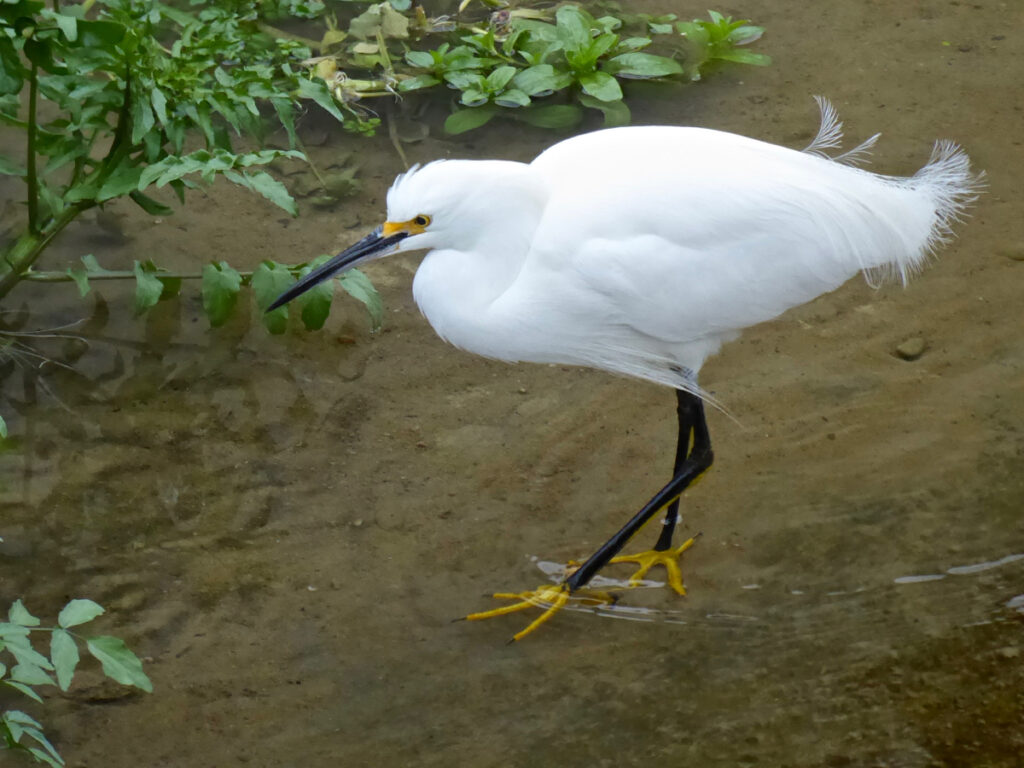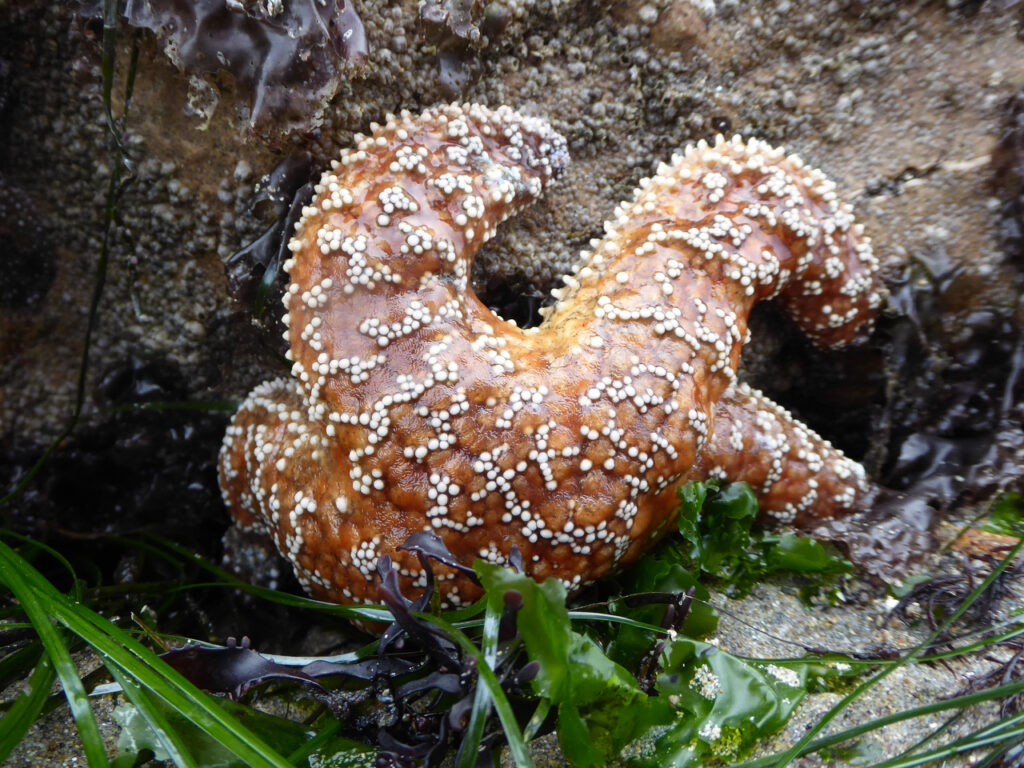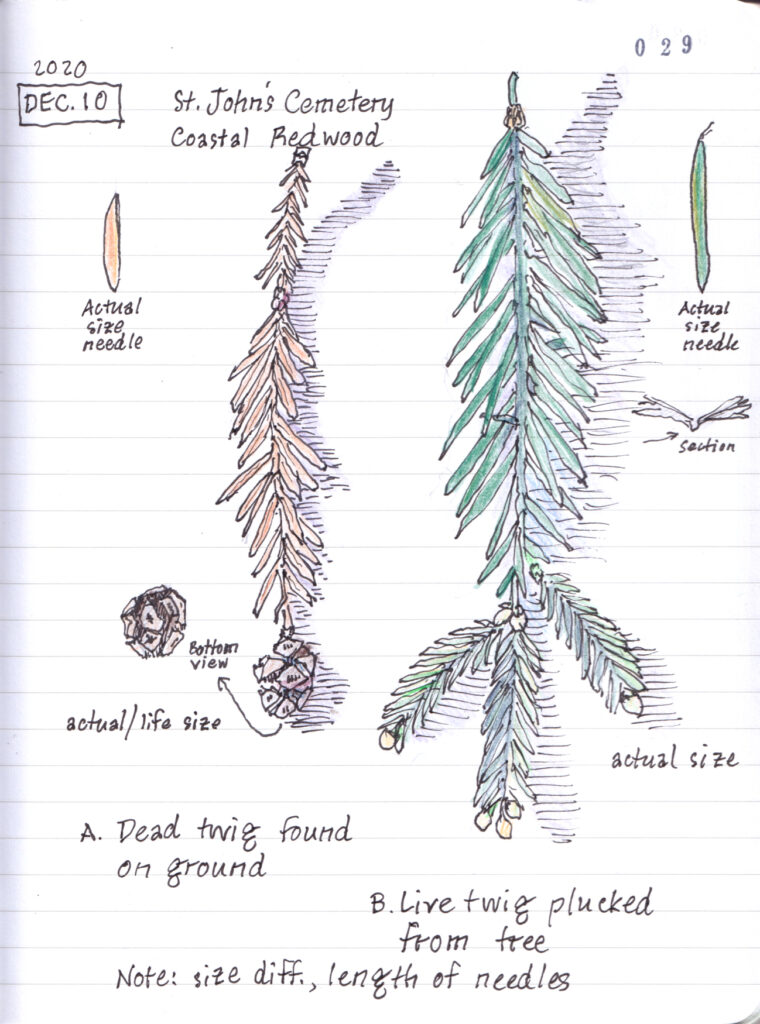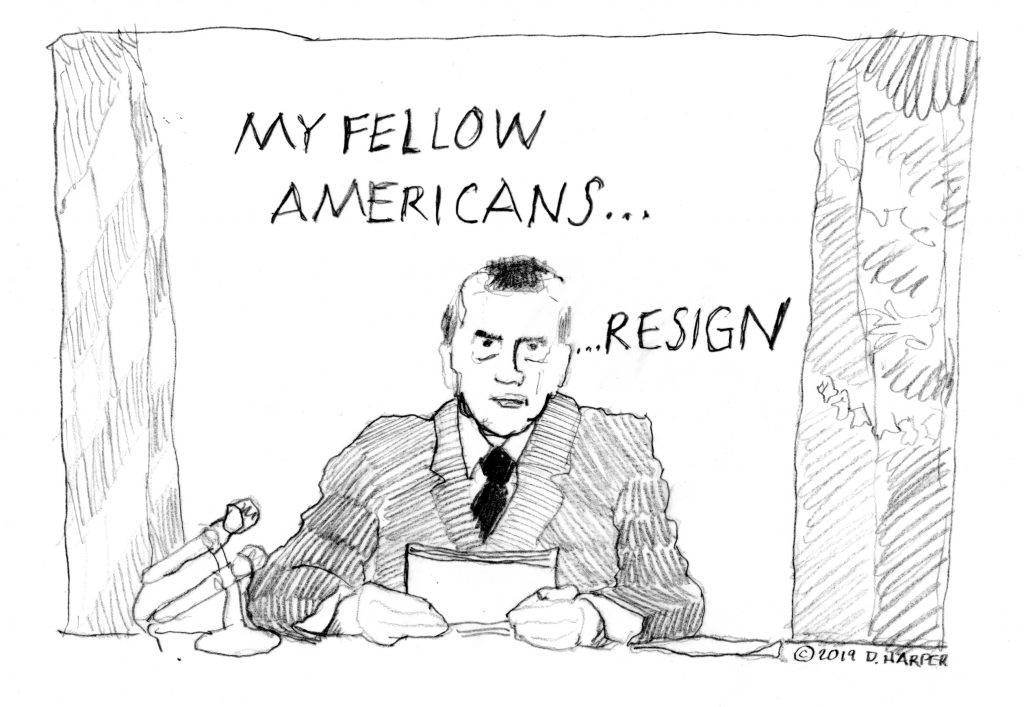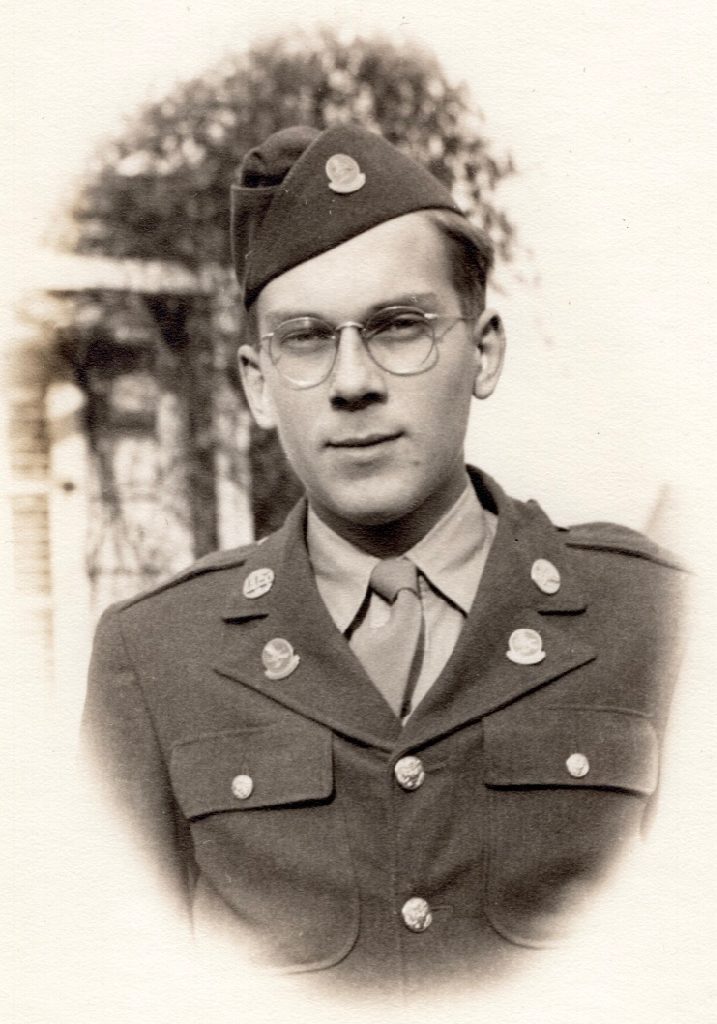So we’re still stuck in lockdown, and maybe you’re getting bored with your daily walks. The British Pilgrimage Trust has a suggestion: turn your walks into mini-pilgrimages. Their Web site has a list of “holy places” in the U.K. that you can walk to. Next you set a spiritual “intention,” then treat your walk as a kind of “focused meditation.” In an interview with Religion News Service, Guy Hayward, director of the Pilgrimage Trust, says more about those “intentions”:
“Pilgrimage is about traveling, about being a stranger in a strange land, according to [Hayward]. The pandemic flips that on its head. ” ‘Staying still is actually even more of a strange experience,’ he said. ‘It’s like, how do you make yourself be a stranger in a place you know really, really well? How do you make yourself see it fresh and see it in a new way?’ “
This, by the way, sounds a lot like Henry Thoreau’s essay on “Walking.”
For us Unitarian Universalists, what might constitute a “holy place” to which we might make a micro-pilgrimage? Back when we lived in downtown San Mateo, I would walk to different houses of worship. As is true of many small American cities these days, San Mateo has quite a diversity of faith communities, so from our old apartment I could walk to a Hindu temple, an Islamic masjid, a couple of historically Black churches, a Pure Land Buddhist Temple, a UCC church, a Catholic church, a Pentecostal storefront church, and several other places of worship. I’d think about — maybe I should say, do “focused meditation” on — the religious diversity of the world, and my place in that diversity. It proved to be both uplifting (“A masjid? how cool is that!”) and humbling (“Gee, Unitarian Universalism is not as important in the world as I’d like to believe”).
Now I live next to a cemetery. Walking in cemeteries was something of a tradition in New England, in part because they plow the roads in cemeteries in winter so it’s one of the few places you can walk safely without skis or snowshoes. But it was also a meditative practice: you’d read the inscriptions and wonder about the person who had died. This is another exercise in humility, and a lesson in perspective. How well am I living my life now, knowing that I’m as mortal as that person lying under the gravestone? But perhaps you have to be from New England, with that grim New England worldview, to appreciate this kind of micro-pilgrimage.
You can also follow Thoreau’s lead, and look at the world of nature around you. Even when you live in the city, or in the inner suburbs, places where humans utterly dominate the landscape, there are still plenty of non-human organisms worthy of human attention. Recently, I find myself looking for flowering weeds, like this chickweed:
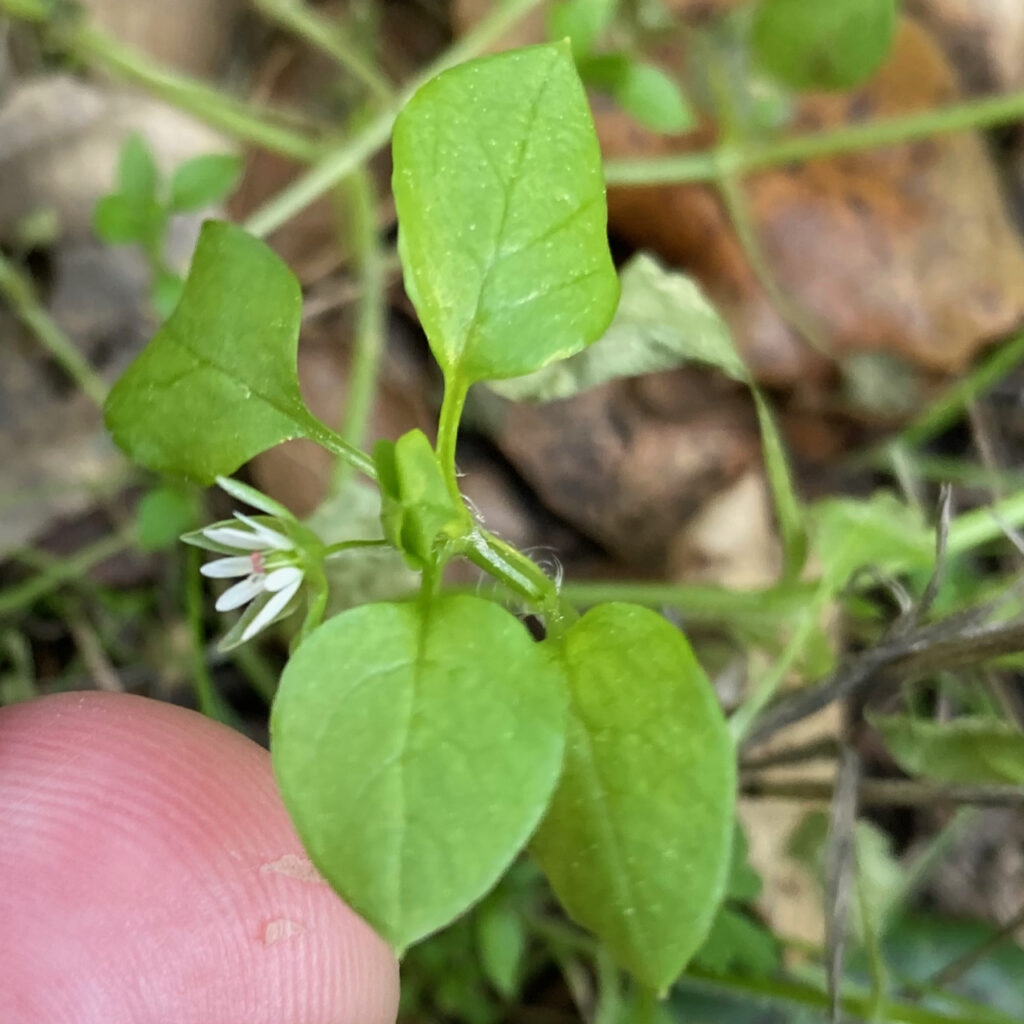
Or this flower, which is not a dandelion, but a related flower from the Cichorieae tribe (probably a Sow Thistle):
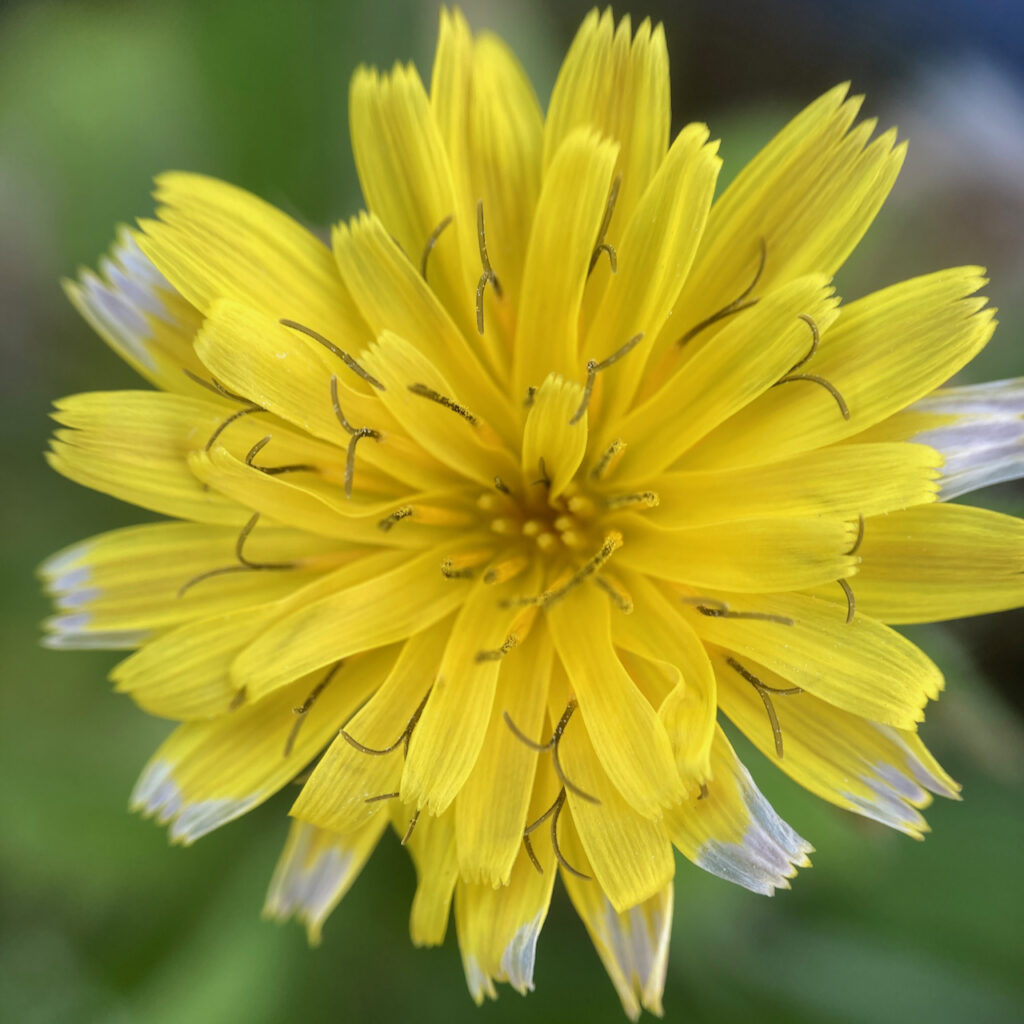
Why do I look for weeds? Maybe because of the same sentiment that Malvina Reynolds expressed in her song, “God Bless the Grass”:
God bless the grass that grows through the crack,
They roll the concrete over it to try and keep it back….
God bless the truth that fights toward the sun,
They roll the lies over it, and think that it is done….
The real point in all this is that any walk, even a walk around your neighborhood, can become more than just a walk. It can become a spiritual journey, where even though you stay in your neighborhood, you travel very far in spirit.


